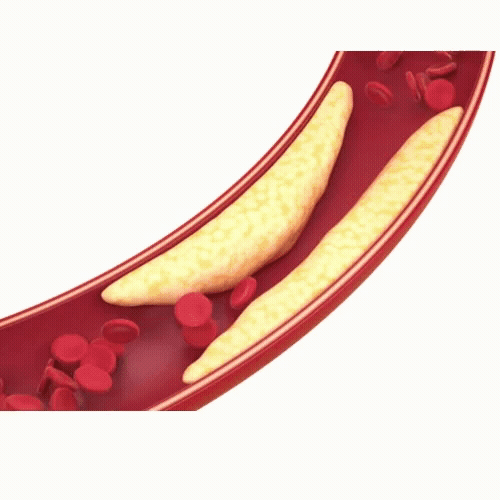Atherosclerosis

Atherosclerosis, or "hardening of the arteries," occurs when fats and calcium build up in the arterial walls, forming plaque that narrows the arteries and restricts blood flow. In the coronary arteries, this can lead to coronary artery disease, increasing the risk of a heart attack. If it affects the brain's arteries, it may cause a transient ischemic attack (TIA) or stroke. Atherosclerosis can also impair circulation in the pelvis and legs, causing poor circulation, delayed wound healing, and erectile dysfunction.
Treatment often includes lifestyle changes, like quitting smoking, and medications to lower cholesterol, control blood pressure, and reduce other risk factors.
What Are the Symptoms of Atherosclerosis?
Atherosclerosis is a condition where plaque, composed of fats, cholesterol, and calcium, builds up in the arteries. This buildup can happen gradually, leading to symptoms that often emerge as the condition progresses. The specific symptoms you experience depend on which arteries are affected. If a major artery becomes significantly blocked, you might experience severe symptoms, similar to those of a heart attack or stroke.
Peripheral Artery Disease / Atherosclerosis by Dr. Arash Padidar
Here’s an overview of symptoms based on the arteries involved:
Symptoms of Atherosclerosis in the Coronary Arteries
These arteries supply blood to your heart. Blockages here can result in:
- Angina (chest pain)
- Shortness of breath
- Arrhythmias (irregular heartbeat)
Symptoms of Atherosclerosis in the Carotid Arteries
The carotid arteries supply blood to your brain. When these arteries are blocked, symptoms can resemble those of a stroke, including:
- Weakness
- Paralysis or numbness in the face, arms, or legs
- Confusion
- Breathing difficulties
- Dizziness
- Sudden, severe headaches
Symptoms of Atherosclerosis in the Peripheral Arteries
These arteries provide blood to the legs, arms, and pelvis. Blockages may cause:
- Numbness or pain in the affected limbs
Symptoms of Atherosclerosis in the Renal Arteries
The renal arteries supply blood to the kidneys. Plaque buildup here can lead to chronic kidney disease, which may present symptoms such as:
- Fatigue
- Changes in urination frequency
- Loss of appetite
- Nausea
- Itchiness or numbness
Learn More About:
- Atherosclerosis Diagnosis
- Atherosclerosis Treatment
Atherosclerosis exlained by Minimally Invasive Surgical Solutions
Consulatation Appointments (408) 918-0405
